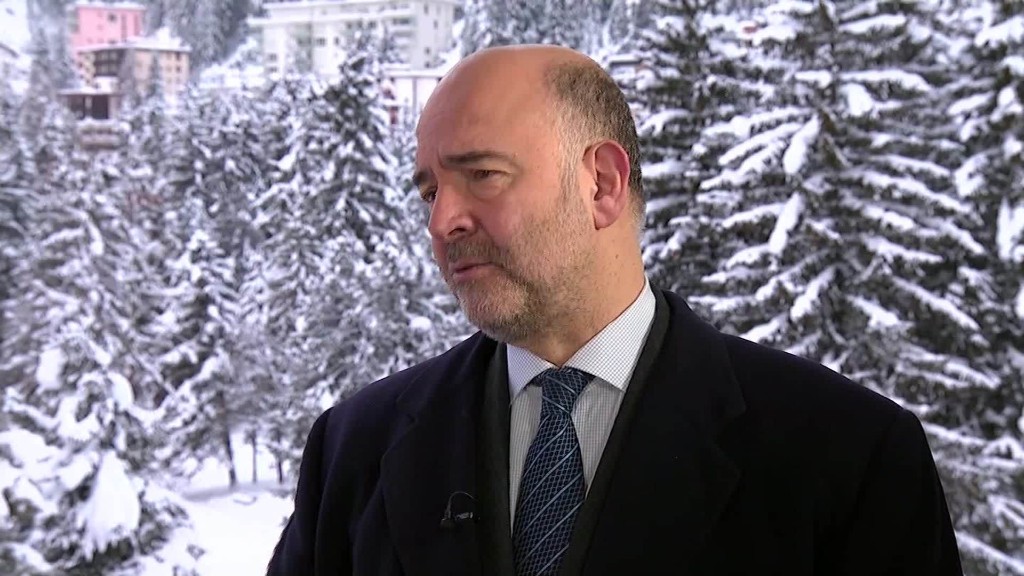
Mario Draghi gave fearful markets a shot in the arm Thursday without actually doing anything.
His promise that the European Central Bank could pump out more money as early as March if necessary was enough to give stocks a lift and send the euro lower against the dollar.
The ECB kept interest rates unchanged, as expected, and said it would continue to buy government bonds and other assets at a rate of 60 billion euros ($65 billion) a month.
Speaking to reporters after the bank's policy meeting, the ECB president said the outlook for the eurozone economy had clearly worsened since December due to uncertainty about global growth, volatile markets and geopolitical risks.
"It will therefore be necessary to review and possibly reconsider our monetary policy stance at our next meeting in early March," he said. "There are no limits to how far we're willing to deploy our instruments."
That could mean increasing the pace of asset buying -- or quantitative easing -- or cutting interest rates to new record lows.
Fear spreads from Wall Street to Davos
Europe's economy is stagnating -- growth in the third quarter of 2015 was just 0.3% -- and the region is facing rising tension from the refugee crisis and the risk of a breakaway by the U.K.
The 40% slump in oil prices since the ECB compiled its most recent set of forecasts will make it even harder for the bank to revive inflation from near zero.
But it should support consumer demand at a time when the weaker outlook for emerging markets, and in particular China, is weighing on exports.
"Our best bet is that the stimulating impact of lower oil prices will roughly offset the drag from the emerging market crisis and the financial turbulence in the next six weeks," wrote Holger Schmieding at Berenberg bank. "If so, the ECB would not have to act in March. Of course, the short term risk to that call is obvious."
Draghi also sounded relaxed about the current market turmoil, which has seen European stocks crash into bear market territory. Banking stocks have been particularly hard hit.
"So far, we have not seen signs of potential financial instability of the like we've seen in the pre-crisis times," he said. "One should be very cautious here about being too self complimentary, but certainly the gyrations we are observing would have severely tested the resilience of the banking sector at that time, and so far we have seen they stand pretty resilient."
Related: We have faith in China, says Lagarde
Turning to China, he said the ECB was carefully monitoring market volatility and the "sizeable capital outflows," but that the slowdown in the economy was broadly in line with expectations.
"The Chinese authorities have a reputation for acting responsibly. What they have done in the last two weeks shows they are gaining control over their policy making."


